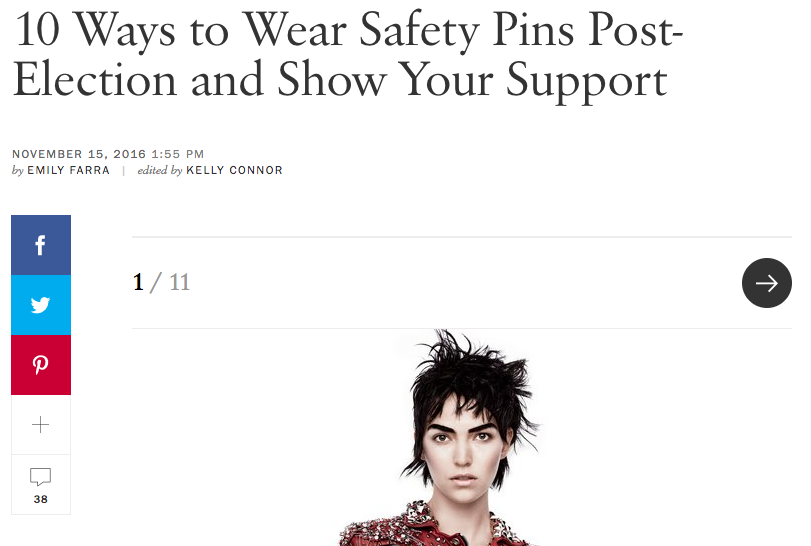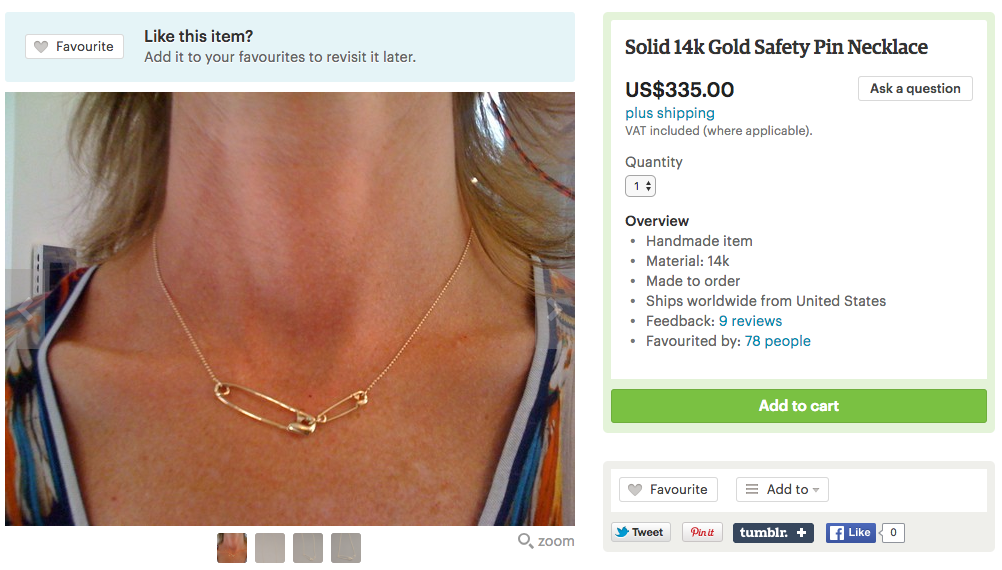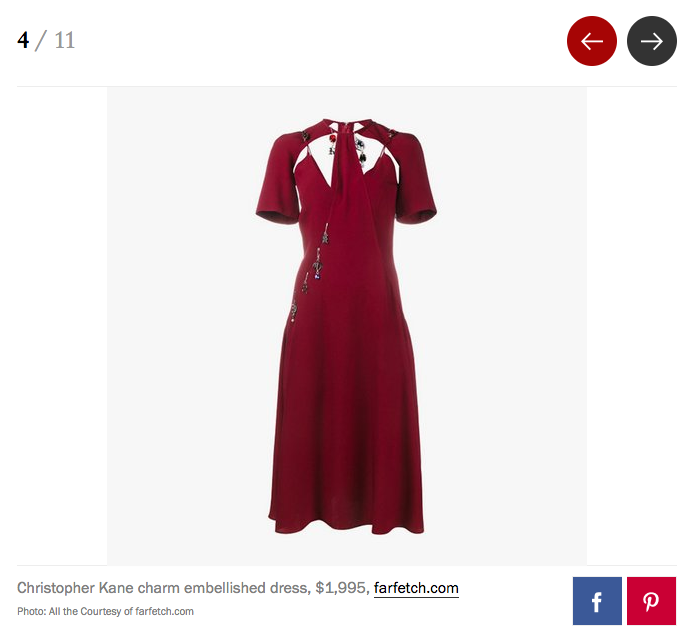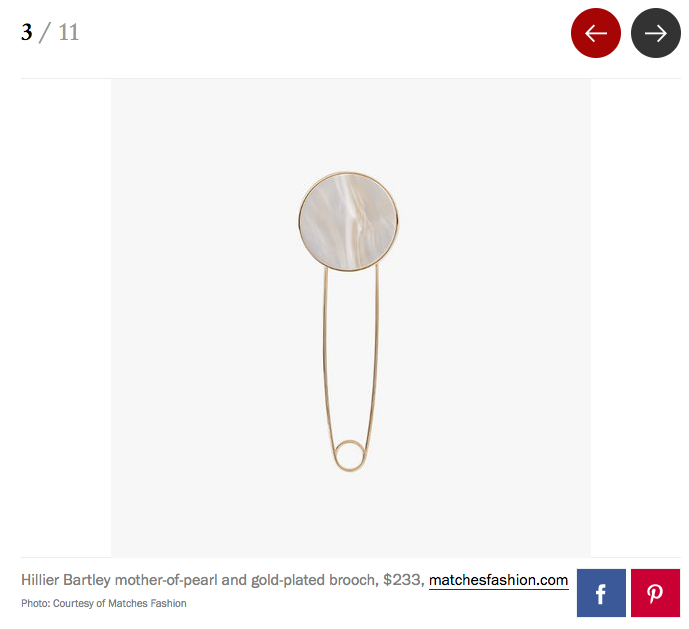
I often have to consider that I have gone into a field that doesn’t think about its actions. Fashion has a tendency to believe it sits in its own vortex of accountability when it comes to offending people – “It’s art, chill out”.
The recent fear that has been instilled in PoC communities (not forgetting LGBT, disabled people, and just women in general) has skyrocketed with the appointment of Trump as the president-elect. Racists everywhere have crawled out of the woodwork with a new found bravado believing their ideals align with that of the new president. One of the suggested ways to combat this was the use of the safety pin. A trend we saw rise then fall post-Brexit here in the UK.
Now, this is where fashion comes in. First, we saw the messy attempt at fake solidarity that was Rebecca Cullen’s $335 gold safety pin necklace sold on Etsy. For a mere $335 you could absolve yourself of all guilt of homophobia, racism, xenophobia, sexism and ableism!

Cullen’s profit over humanity mindset was dragged accordingly on Twitter, with users highlighting how tacky it was to sell solidarity at this high price when a BLM pin cost $10.
Next, we had the proclaimed fashion bible, Vogue US with a piece titled “10 Ways to Wear Safety Pins Post-Election and Show Your Support”. The title alone was enough to send me into overdrive. First things first, our fear is not a trend. Making your safety pin pop should be the least of your worries when you fasten one on. The article itself sits on the side of someone who is privileged, and doesn’t highlight any direct action that can be done to help the people this is affecting.
One line, in particular, that depicts why you should wear a pin is “you’re tired of cruel Facebook posts or scrolling through upsetting memes on Instagram” – I’m glad your biggest fear is social media! Mine is being called the N-word on my way to work. (By the way, this first happened to me at the age of 11 when walking to the shops – this person was a grown adult and my neighbour).
The article then goes on to a slideshow of ready-to-wear safety pin pieces that range from a $1195 Christopher Kane dress to a $300 Versus Versace safety pin sneakers (yes, because when I get subjected to racial abuse I’m going to be looking out for people’s feet).

The closing line – “shop them all in the slideshow above, then put your money where your mouth is and take real action against the forces of hate” – shows just how far removed this is from authentic solidarity, and a crass attempt at merging politics and fashion with an agenda of capitalism. If even one of these designers had made these pieces with solidarity in mind or was donating some of the profits then this would make some kind of sense – but this isn’t the case.
The safety pin itself is problematic at best. The idea behind it – a literal safe space around the person wearing it – was birthed from a good place, but it’s simply not good enough.
Putting on the pin just denounces yourself from being a racist, it doesn’t make you an ally. It’s a symbolic pat on the back for people who want to feel like they have done something for a cause. The issue is as a person who has experienced racism, sexism and misogynoir (where racism and sexism meet), why am I being told what will make me feel safe, as opposed to being asked? When someone is hurling racial slurs at me, believe me when I say that I will not be looking for a safety pin. If you want to be an ally then stand up for what you think is right. Wearing a pin, but being idle in your actions isn’t solving the problem. Tackling the issue of why you think we need safety pins in the first place would be energy better served.
If wearing a pin makes at least one person feel safer, then fair game, but let’s not become complacent and deem this as enough. And, if you are one of these people who think buying a Hillier Bartley $233 mother of pearl safety pin is sticking it to the man, then you need to reevaluate your stance on solidarity.

Fashion, I beg of you to do better. If you need help then look to the likes of Sophie Theallet who vows not to dress the new FLOTUS; ASHISH who declares to all he is a proud immigrant; and publications such as Fashionista that have stated they will not cover the Trump family fashion. Don’t urge people to throw money at material objects that will not help anyone. If you want an excuse to buy expensive things use anything else but do not use our fears.









